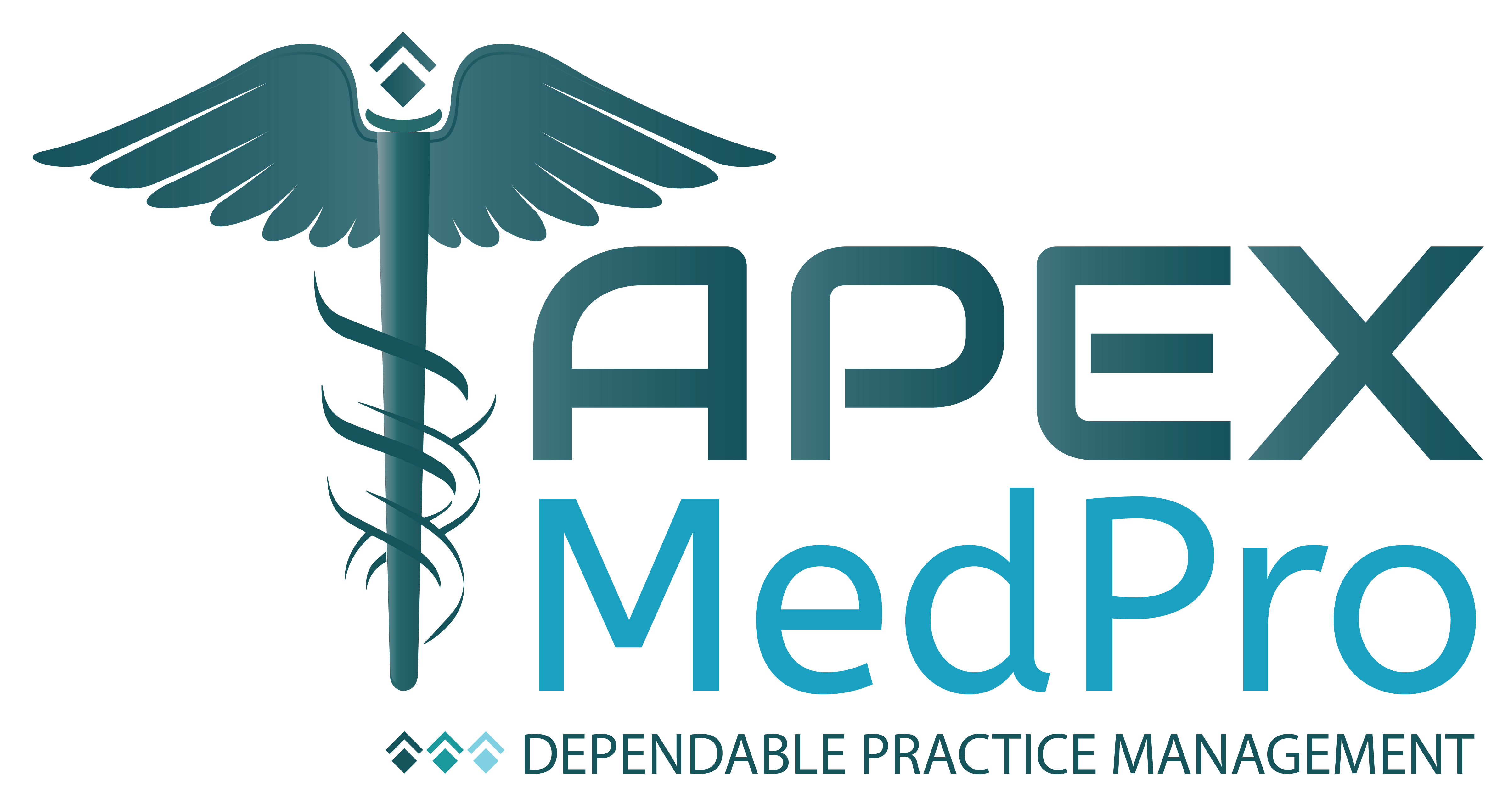Evaluating your processes regularly is one of the easiest ways for many medical providers to improve their accounts receivable. By addressing process inefficiencies and oversights, you can prevent account receivables from accumulating, aging, and turning into revenue leakage.
Submitting Correct Claims on their first attempt
It is crucial that healthcare providers accurately collect patient information and submit correctly formatted insurance claims the first time around. Incorrect claims can lead to claim denials and prolonged accounts receivable cycles. The biggest threat to reimbursement for medical claims comes from unverified insurance. Mike, Vice President of Finance at Apex MedPro, says, “From a revenue cycle perspective, getting the most accurate information up front starts with patient scheduling and patient registration that provides the groundwork by which claims can be billed and collected in the most efficient and effective manner possible.”
Set Payment Expectations & Get the Patient Portion Quickly
In order to streamline the billing process and avoid any misunderstandings, it is important to set payment expectations with patients upfront and collect any patient portions promptly. By doing so, this will help ensure a smooth and efficient billing process.
Provider practices can increase the likelihood of reimbursement by setting the expectation for financial responsibility prior to scheduled visits. Additionally, providers who do not collect patient copays before patients leave care settings risk losing revenue. When patients do not pay immediately following appointments, providers are 20% less likely to collect reimbursement. Collecting immediate payment from patients helps to expedite one portion of the Accounts Receivable cycle and simplifies tracking efforts further along the cycle. Establishing prompt collection procedures can improve Accounts Receivable outcomes, as nearly half of all patient financial responsibility is written off by hospitals as bad debt.
Providers should investigate offering partial payment plans to patients who cannot cover their portion of the bill directly after receiving care, in order to lock up some reimbursement and establish an easily tracked schedule.
Charge Entry
After a patient visit, providers are responsible for determining the charges for the care provided and submitting and tracking claims. Charge entry in medical billing refers to the process clinicians follow for submitting detailed lists of the services patients receive, which must be coded for claims submission. A single healthcare provider must keep track of thousands of healthcare codes for various procedure charges.
Inaccurate charge entry can have a significant impact on providers’ bottom lines. According to research, up to 1% of net charges may be captured incorrectly due to discrepancies between documentation and billed services, or missed charges. While 1% may seem like an acceptable loss, for a hospital expecting $250 million in yearly revenue, this can amount to a loss of $2.5 million due to administrative errors. If charges are miscoded, providers may not get the full payment they are owed, and may also risk audit penalties for overcharging payors and patients.
Submit Claims for Reimbursements
After providers have entered and coded the charges, they need to submit claims to the payors and patients in order to get reimbursement. If there are any errors in the charge entry or inaccuracies in the patient information on the submitted claim, it will be denied and the provider’s accounts receivable cycle will be lengthened. In addition to addressing the lag between care and reimbursement, resubmitting claims also increases staff expenses. For providers that have patients with Medicare coverage, submitting claims for reimbursement is even more complicated if the patients have additional insurance coverage. The provider needs to keep track of the following:
- Information about the patient’s supplemental insurance coverage and whether it remains active.
- Ensure that the supplemental insurance company has received the correct bill from Medicare.
- Expenses not covered by Medicare and the resubmission process for those charges.
- Payments to patients for the remaining deductible amounts not covered by Medicare or their supplemental insurer.
- Provide more options to the patients for paying their bills.
Accounts Receivable Tracking
Regularly tracking your accounts receivable balances gives you the information you need to identify which patients are at risk of becoming delinquent and contribute to bad debt. You can compare ARs over time to identify dangerous trends early and determine any outstanding reimbursements that may be easy to collect. Analyzing your AR data can help you determine aged debtors and collection rates. These two metrics provide an overview of your AR cycle and whether it is trending in the right direction. Aged debtor reports reveal how many ARs exist within each age group. Collection rates demonstrate how successful you are at converting ARs to reimbursements in a given accounting period.
When tracking accounts receivable, providers should calculate their average AR cycle time. Doing so can help providers identify potential areas for improvement. Additionally, shorter AR cycles tend to carry less risk of patients forgetting about and/or not paying their bill. Therefore, providers may wish to prioritize starting the AR cycle as quickly as possible after care is provided.
Outsourcing Accounts Receivable & Revenue Cycle Management Services
If you are struggling to reduce days in accounts receivable or you do not have time to evaluate your current processes, outsourcing to a company like Apex MedPro could be a helpful solution. Apex MedPro specializes in big data analytics and Revenue Cycle Management Services, which could help alleviate many of the provider’s AR complications. We are expert in Industry’s top and mid-level EHR and Practice Management Software, which enables us to work with your electronic health records software to help make sure that charges are accurate and that denied claims are resubmitted immediately. For Free Practice Audit, or Consultation with one of our Revenue Cycle Manager, please Call Us on 877-333-1760 or Email us at info@apexmedpro.com

